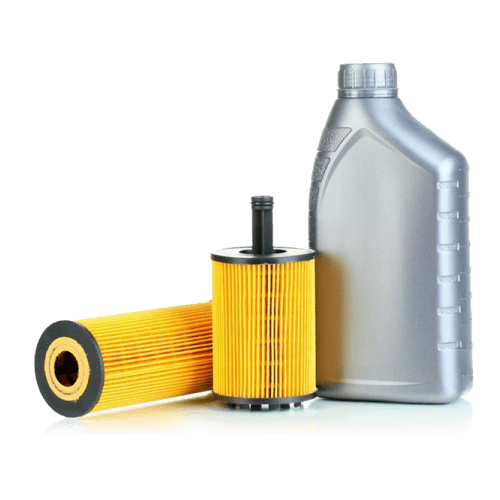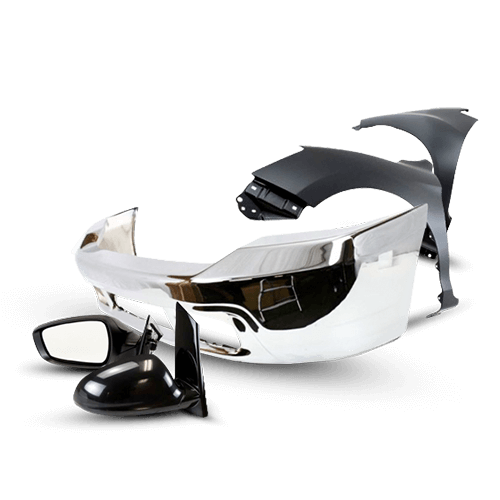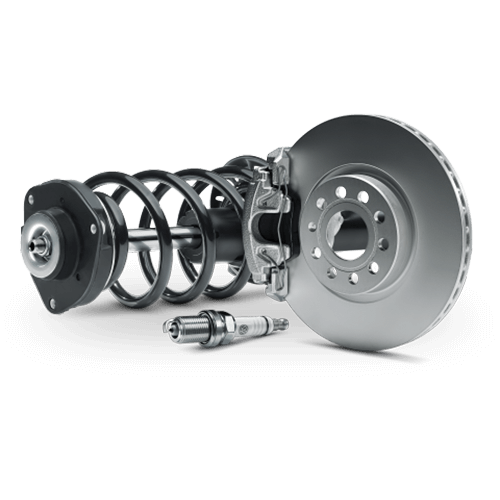
BMW X5 vs. Audi Q7: Which Luxury SUV Reigns Supreme?
In the highly competitive world of luxury SUVs, two titans stand out: the BMW X5 and the Audi Q7. Both offer a compelling blend of premium features, impressive performance, and uncompromising comfort. As discerning buyers navigate the market, the age-old question arises: which of these German powerhouses is the better choice? In this comprehensive comparison, we'll delve into the key aspects of these two formidable vehicles, helping you make an informed decision that aligns with your driving preferences and lifestyle needs.
Exterior Design and Dimensions
The BMW X5 boasts a bold and assertive presence, with its signature kidney grille and sculpted lines exuding a sense of athletic elegance. The SUV's dimensions are impressive, measuring 194.3 inches in length, 78.9 inches in width, and 69.0 inches in height, with a wheelbase of 117.1 inches. This substantial frame translates into a commanding on-road presence, complemented by the X5's distinctive design cues.
In contrast, the Audi Q7 adopts a more refined and sophisticated aesthetic. Its sleek, aerodynamic silhouette is accentuated by Audi's signature Singleframe grille and sharp, angular lines. Measuring 199.3 inches in length, 77.5 inches in width, and 68.5 inches in height, with a wheelbase of 117.9 inches, the Q7 strikes a balance between imposing size and elegant proportions.
Both the X5 and the Q7 offer a range of wheel sizes, from 19-inch to 22-inch options, allowing owners to further customize the appearance of their luxury SUV. While the BMW X5 exudes a more muscular and sporty vibe, the Audi Q7 radiates a sense of refined sophistication, catering to different aesthetic preferences.
Interior and Comfort
Step inside the BMW X5, and you're greeted by a cabin that seamlessly blends premium materials with intuitive ergonomics. The driver-centric layout, with its well-positioned controls and high-quality switchgear, creates an engaging and responsive driving experience. Passengers are treated to ample head and legroom, with the option to configure the seating arrangement to accommodate up to seven occupants.
The Audi Q7, on the other hand, boasts an interior that is nothing short of exceptional. The cabin is adorned with exquisite craftsmanship, featuring top-notch leather upholstery, brushed aluminum accents, and a sleek, minimalist design. The Q7 offers a spacious and versatile interior, with the ability to seat up to seven passengers comfortably. The generous cargo space, with up to 69.9 cubic feet of storage, ensures that your adventures are never limited by a lack of practicality.
Both the X5 and the Q7 excel in providing a luxurious and comfortable driving experience, catering to the needs of discerning buyers. The BMW's driver-focused approach may appeal to those seeking a more engaging behind-the-wheel experience, while the Audi's refined and sophisticated cabin may resonate with those who prioritize elegant design and premium materials.
Performance and Powertrain
Under the hood, the BMW X5 offers a range of potent engine options, including turbocharged inline-six and V8 units, as well as a plug-in hybrid variant. The base X5 sDrive40i model delivers a robust 335 horsepower and 330 lb-ft of torque, while the range-topping X5 M50i variant boasts a staggering 523 horsepower and 553 lb-ft of torque. This impressive power output translates into exhilarating acceleration and confident highway merging, with the X5 capable of sprinting from 0 to 60 mph in as little as 4.1 seconds.
The Audi Q7, not to be outdone, also offers a diverse powertrain lineup. Buyers can choose from turbocharged four-cylinder, V6, and even a plug-in hybrid option. The base Q7 45 TFSI model produces 248 horsepower and 273 lb-ft of torque, while the top-tier SQ7 variant packs a potent 500 horsepower and 568 lb-ft of torque. This level of performance allows the Q7 to compete with the X5's impressive acceleration, with the SQ7 capable of reaching 60 mph in just 4.3 seconds.
Both the X5 and the Q7 come equipped with advanced all-wheel-drive systems, ensuring confident handling and traction in a variety of driving conditions. The BMW's rear-biased xDrive system provides a more dynamic and engaging driving experience, while the Audi's Quattro all-wheel-drive system offers a more balanced and composed on-road demeanor.
In terms of fuel efficiency, the BMW X5 and Audi Q7 offer a range of options to suit different driving needs. The X5's turbocharged inline-six engines deliver respectable fuel economy, while the Q7's four-cylinder and hybrid variants provide even greater efficiency for those seeking to minimize their environmental impact.
Driving Dynamics
The BMW X5 has long been renowned for its exceptional driving dynamics, and the latest iteration continues this tradition. The SUV's well-tuned suspension system, combined with its precise steering and responsive powertrain, delivers a driving experience that is both engaging and confidence-inspiring. Whether navigating winding roads or tackling highway maneuvers, the X5 exhibits a level of agility and control that belies its size and weight.
The Audi Q7, while not quite as driver-focused as the X5, still manages to impress with its impressive handling capabilities. The Q7's adaptive air suspension, available on select models, provides a supple and composed ride quality, while its well-weighted steering and balanced chassis dynamics ensure a comfortable and composed driving experience. While the Q7 may not offer the same level of driver engagement as the X5, it still delivers a refined and capable performance that will satisfy the needs of most luxury SUV buyers.
Both the X5 and the Q7 are equipped with advanced braking systems, ensuring confident and reliable stopping power. The X5's available M Sport brakes, with their larger discs and more aggressive pads, provide exceptional braking performance, while the Q7's standard brakes offer a well-balanced and progressive feel.
Technology and Infotainment
The BMW X5 boasts a comprehensive suite of advanced technology features, headlined by its intuitive iDrive infotainment system. Featuring a large, high-resolution touchscreen display, the iDrive system offers seamless integration with smartphone connectivity, voice commands, and a host of customizable settings. The X5 also comes equipped with a digital instrument cluster, providing the driver with a wealth of information at a glance.
The Audi Q7, not to be outdone, features the brand's renowned MMI infotainment system. Housed within a sleek, dual-screen setup, the MMI system offers intuitive controls, crisp graphics, and a wide range of connectivity options. The Q7 also features a fully digital Audi Virtual Cockpit, allowing the driver to customize the information displayed in the instrument cluster.
Both the X5 and the Q7 offer a comprehensive suite of driver assistance technologies, including adaptive cruise control, lane-keeping assist, and advanced parking aids. The BMW's available Driving Assistance Professional package takes things a step further, with features like traffic jam assist and autonomous emergency braking.
In the realm of connectivity and entertainment, the X5 and the Q7 provide a wealth of options, from wireless smartphone charging to high-end audio systems. The choice between the two will largely depend on personal preferences and the specific features that matter most to the individual buyer.
Safety Features
Safety is of paramount importance in the luxury SUV segment, and both the BMW X5 and the Audi Q7 excel in this regard. The X5 has earned a five-star overall safety rating from the National Highway Traffic Safety Administration (NHTSA), thanks to its robust construction and comprehensive suite of active and passive safety features.
The Audi Q7 also boasts an impressive safety record, with a five-star NHTSA rating and a Top Safety Pick+ designation from the Insurance Institute for Highway Safety (IIHS). The Q7's advanced driver assistance technologies, such as automatic emergency braking and lane-keeping assist, work in tandem with its sturdy body structure to provide exceptional protection for occupants.
Both SUVs are equipped with a multitude of airbags, including front, side, and curtain airbags, as well as advanced seatbelt systems to ensure the safety of all passengers. Additionally, the X5 and the Q7 offer available features like night vision with pedestrian detection, helping to enhance situational awareness and reduce the risk of collisions.
When it comes to safety, the BMW X5 and the Audi Q7 are both class-leading options, providing peace of mind for discerning buyers who prioritize the well-being of their loved ones.
Reliability and Maintenance
Reliability is a crucial consideration for luxury SUV buyers, as the cost of ownership can quickly add up. In this regard, both the BMW X5 and the Audi Q7 have a mixed reputation, with each model exhibiting its own unique strengths and weaknesses.
The BMW X5 is generally regarded as a reliable and well-engineered vehicle, but it has also been known to experience some common issues, such as problems with the cooling system, electrical components, and occasional transmission glitches. Maintaining an X5 can be more expensive than some of its competitors, with parts and labor costs typically higher than average.
The Audi Q7, on the other hand, has a reputation for being a well-built and dependable luxury SUV. However, it has also been known to experience some common issues, such as problems with the air suspension system and occasional electronic gremlins. The cost of maintaining a Q7 can also be on the higher side, with Audi parts and service generally more expensive than mainstream brands.
It's important to note that both the X5 and the Q7 are complex and technologically advanced vehicles, which means that regular maintenance and prompt attention to any issues are crucial to ensuring long-term reliability. Prospective buyers should carefully research common problems, maintenance schedules, and the availability and cost of replacement parts in their local area before making a purchase decision.
Price and Value
The BMW X5 and the Audi Q7 are both premium luxury SUVs, and as such, they come with a corresponding price tag. The X5 starts at around $59,000 for the base sDrive40i model, with the range-topping X5 M50i variant commanding a price tag of over $83,000.
The Audi Q7, on the other hand, starts at approximately $54,000 for the base 45 TFSI model, with the top-of-the-line SQ7 variant priced at around $85,000.
When it comes to value, both the X5 and the Q7 offer a compelling package of features, performance, and luxury. The BMW's driver-focused approach and more powerful engine options may appeal to those who prioritize a more engaging driving experience, while the Audi's refined interior and sophisticated design may resonate with buyers who value elegant aesthetics.
Ultimately, the decision between the BMW X5 and the Audi Q7 will come down to personal preferences, budget, and the specific features and capabilities that matter most to the individual buyer. Both SUVs are exceptional in their own right and offer a premium ownership experience that is sure to impress.
Conclusion
The BMW X5 and the Audi Q7 are two of the most formidable luxury SUVs on the market, each offering a unique blend of performance, comfort, and technology. The X5's driver-centric approach and more powerful engine options may appeal to those seeking a more engaging behind-the-wheel experience, while the Q7's refined interior and sophisticated design may resonate with buyers who prioritize elegant aesthetics.
Ultimately, the choice between these two German titans will come down to personal preferences, budget, and the specific features that matter most to the individual buyer. Both the X5 and the Q7 are exceptional in their own right, and either one would make a fantastic addition to any luxury SUV enthusiast's garage.
Whether you're drawn to the BMW's dynamic handling or the Audi's refined elegance, one thing is certain: you can't go wrong with either of these exceptional luxury SUVs. The decision is yours to make, but whichever path you choose, you're sure to enjoy a premium driving experience that will leave a lasting impression.























































